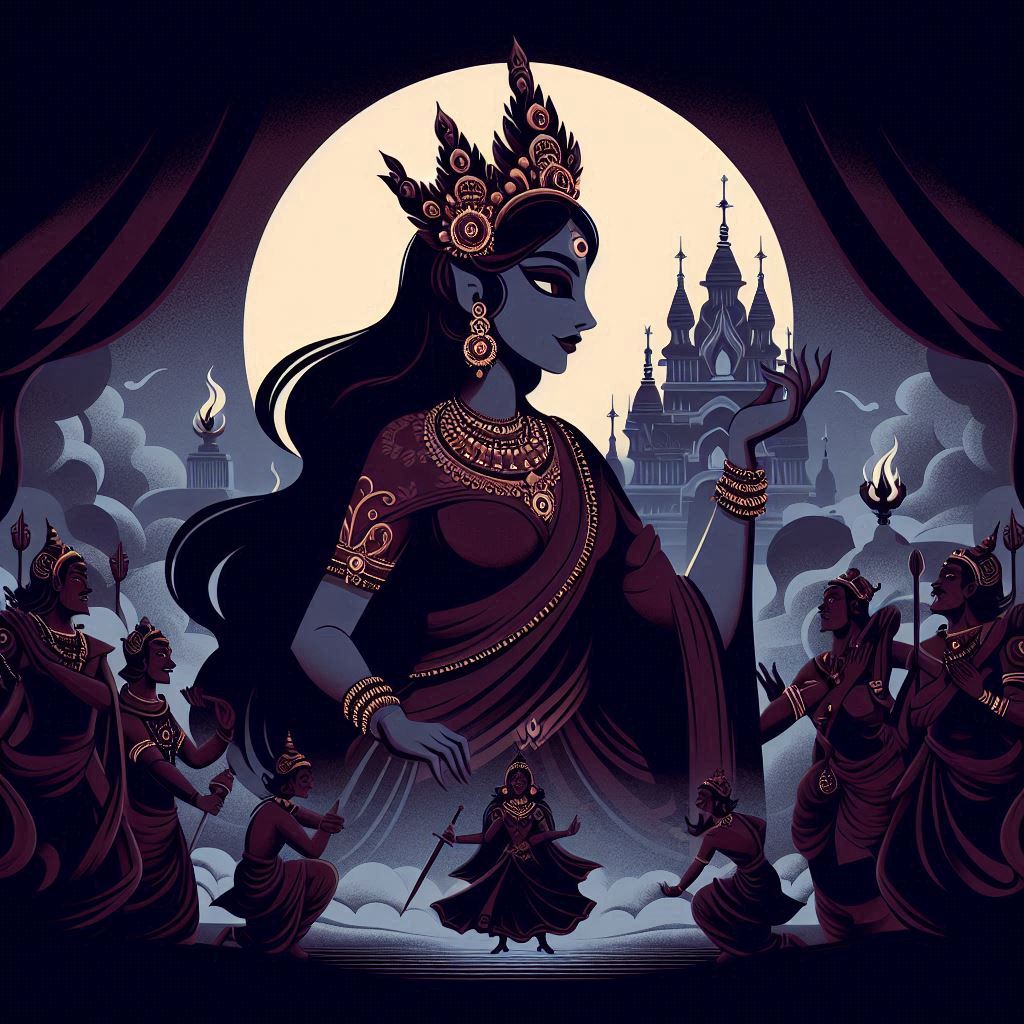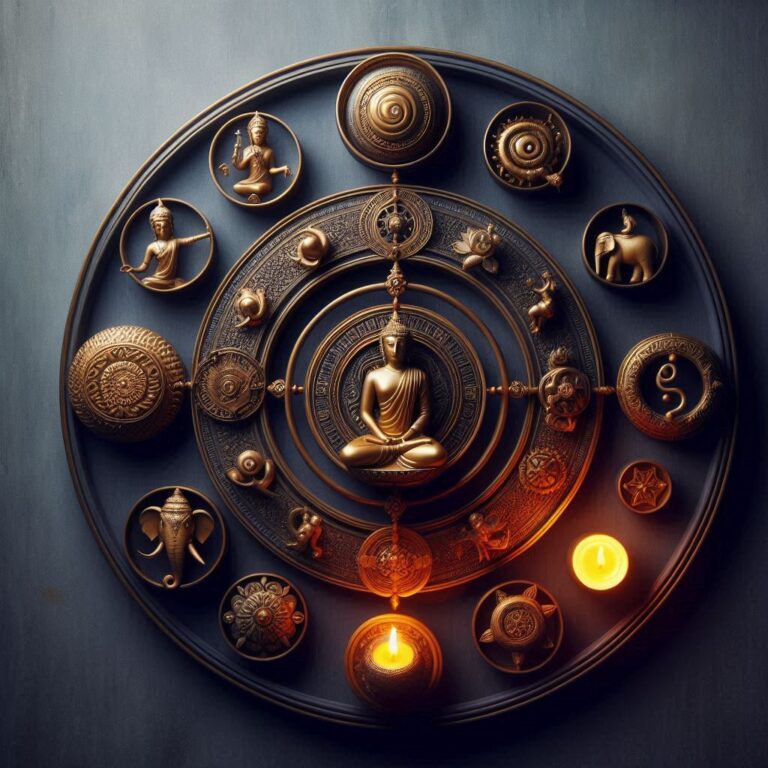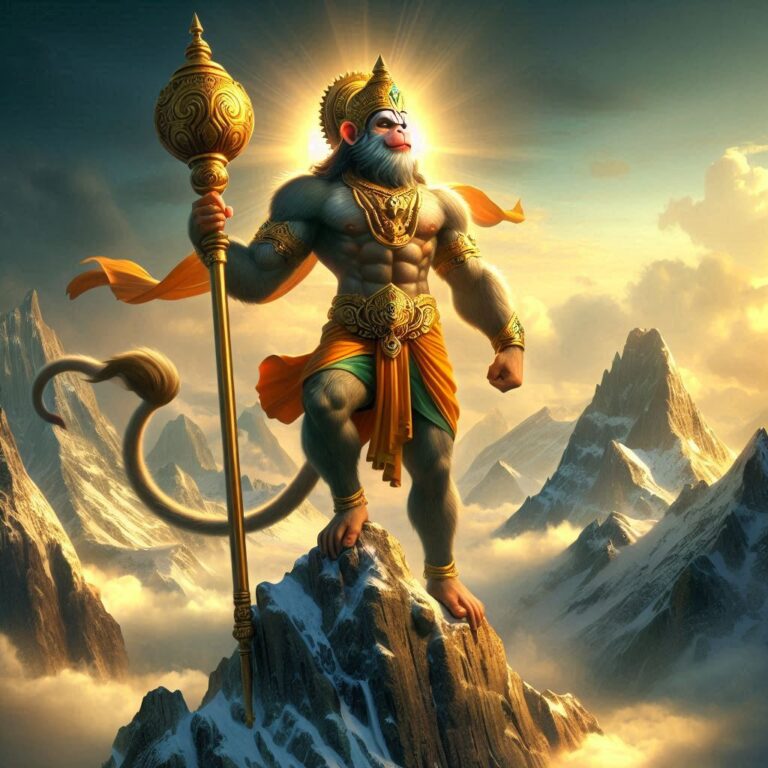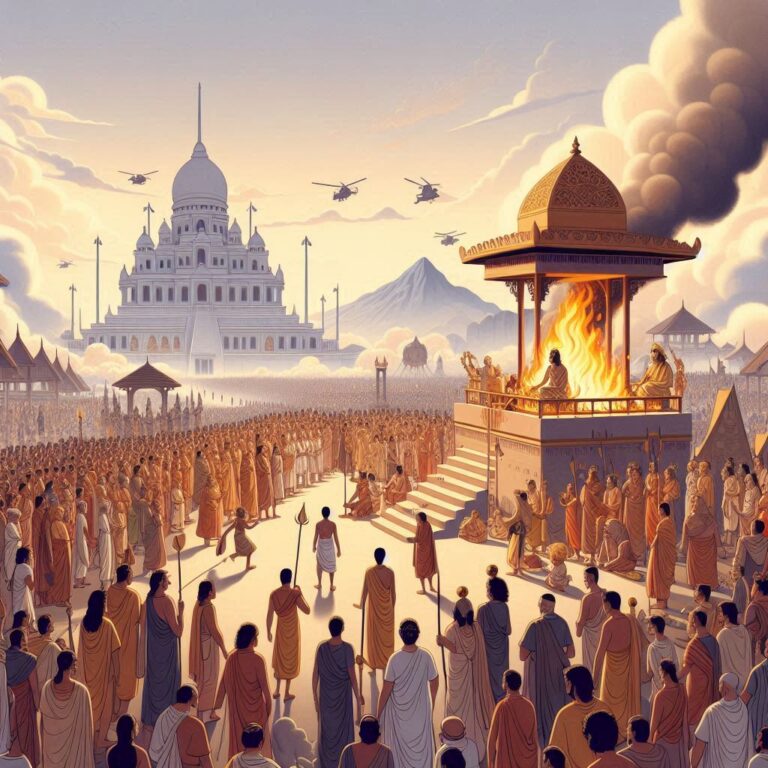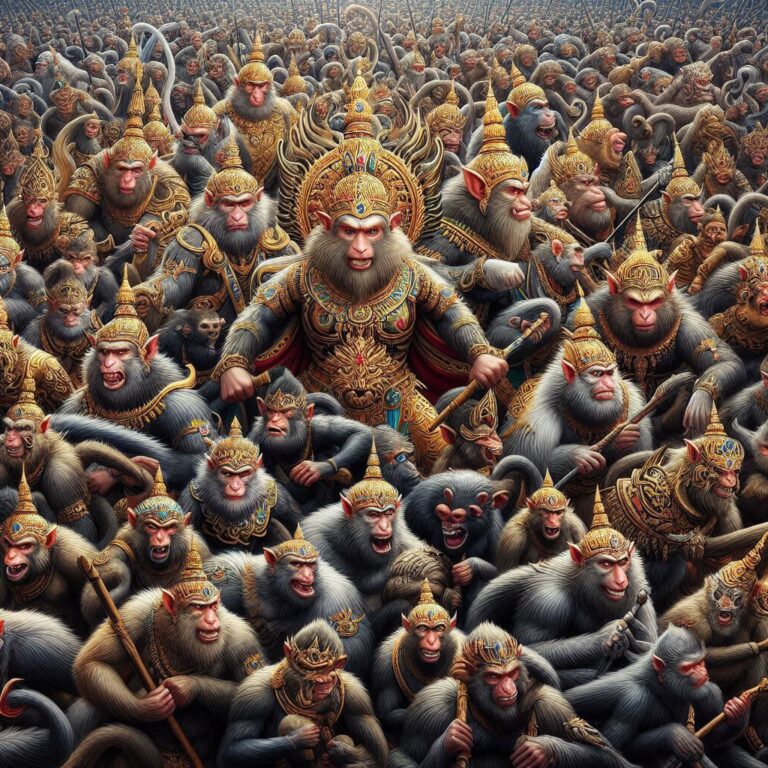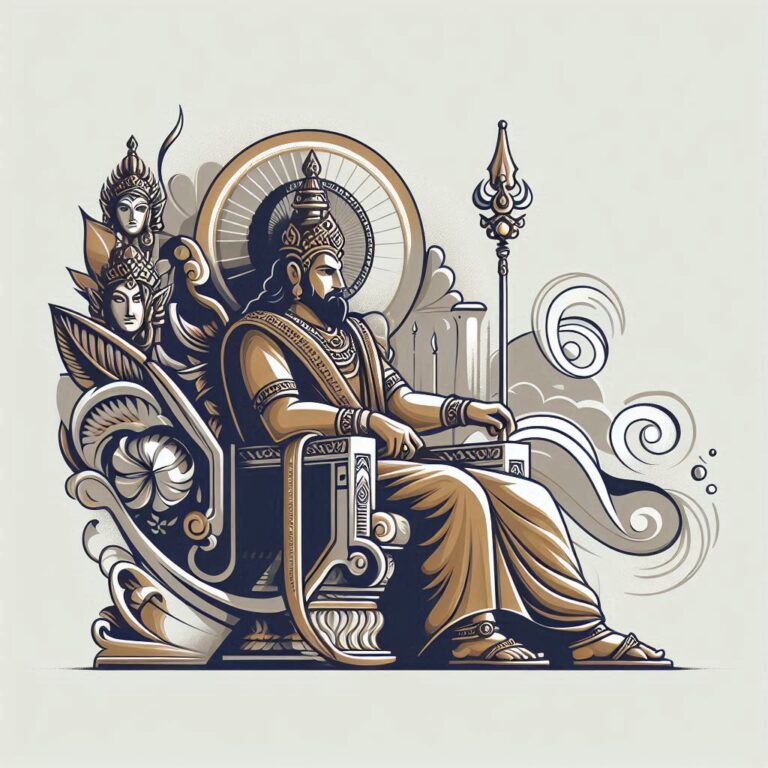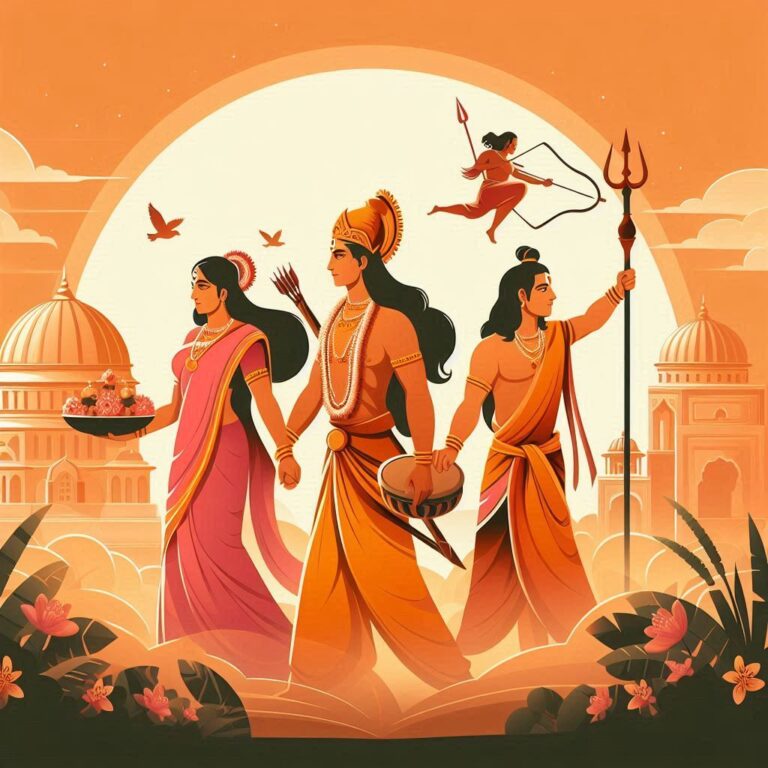Kaikeyi’s Manipulation: Unveiling Her Role and Demands in Ramayana
Queen Kaikeyi’s Deceit: Unraveling Her Role in the Ramayana
When we talk about the Ramayana, a rich tapestry of values, morality, and devotion, one character often sparks intrigue and debate: Queen Kaikeyi. Now, you might be wondering, what is it that makes her such a captivating figure? Why do her actions resonate even centuries later? Well, grab some tea, settle in, and let’s dive into the murky depths of her plot, her role, and the demands that changed the course of the epic.
Who Is Kaikeyi?
Before we delve deeper into her crafty machinations, we need to understand who Kaikeyi is. She’s not just any queen; she is one of King Dasharatha’s three wives and the mother of Bharata. Initially portrayed as a loving and dutiful queen, she transitions into a cunning figure as the story unfolds.
The Backstory: A Mother’s Love or a Manipulator’s Scheme?
At the heart of Kaikeyi’s character lies a complex mix of love, jealousy, and ambition. Early on, Kaikeyi is deeply devoted to her husband, King Dasharatha, and her son, Bharata. But do her feelings morph into something darker? When Dasharatha decides to crown Rama as the king, Kaikeyi’s facade crumbles, revealing the complexity of her motivations.
Isn’t it fascinating how a dash of jealousy can lead to a whirlwind of chaos?
The Turning Point: The Two Boons
For those unfamiliar with the storyline, let’s briefly set the stage. Kaikeyi had once saved Dasharatha in battle, and in gratitude, he granted her two boons. This concept of boons can be likened to a double-edged sword; it holds immense power but can also lead to disastrous outcomes.
When Kaikeyi goes for her boons, she asks for Rama’s exile and Bharata’s ascendance to the throne. Her demands are shocking and seem to stem from a place of envy mixed with maternal allegiance.
The Demands Unleashed
You might be curious about the exact nature of her demands. Let’s break it down:
- Rama’s Exile: This demand is pivotal. By casting out Rama, she not only disrupts the rightful succession but also ignites a series of tragedies that follow.
- Bharata’s Kingship: While the desire to see her son ascend the throne may appear noble, the means by which she achieves it taints her intentions.
This leads us to question: Was Kaikeyi’s love for Bharata genuine, or was it a calculated plan masked as maternal affection?
The Psychological Aspect: The Mind of a Manipulator
Kaikeyi’s actions mirror the classic traits of a manipulator. She expertly plays her cards to move the chess pieces of her life. But why? What drives a person to such lengths?
A Blend of Power and Vulnerability
Manipulation often stems from a place of inherent insecurity. Kaikeyi fears losing her relevance in the royal court and her son’s standing. Her motives reveal that her love for Bharata is intertwined with her desire for power. The cravings of the heart can turn innocent dreams into formidable nightmares.
Dohas and Shlokas to Reflect Kaikeyi’s Complex Nature
Let’s enrich our discussion with some traditional wisdom that echoes Kaikeyi’s emotional turmoil:
Doha:
काहे को मोह गए, फले सब सोही।
धन दौलत की रजनी, जीवन रंग झोली॥
Kaahe ko moh gaye, phale sab sohi.
Dhan daulat ki rajani, jeevan rang jholi.
“Why get entangled in attachments, all fruits are the same? Wealth and riches won’t last, life is a fleeting game.”
This reflects her attachment to power, a theme central to her character.
Shloka:
कर्मेन्द्रियाणि संज्ञानि मनश्च सेवते यदा।
तदा विवेक साध्यायां तेन का है जीवन त्यागनी।
Karmendriyaani sangyaanin manashcha sevate yada.
Tadaa viveka saadhyaayaam tena ka hai jeevan tyaagni.
“When the body’s actions are done through the mind, what is the abandonment that life can find?”
Kaikeyi’s struggle can be seen through this lens, battling her inner desires against the moral fabric of her actions.
The Fallout: Consequences of Kaikeyi’s Demands
The aftermath of Kaikeyi’s demands unfolds a complex narrative of consequences that ripple through the epic. Rama, though deeply wounded, does not retaliate. Instead, he embraces his destiny, showcasing resilience in the face of betrayal.
Rama’s Exile: A Path of Sacrifice
Imagine being in Rama’s shoes. Your own stepmother casts you aside, placing her son above you. Yet, he chooses duty over resentment. The character of Rama serves as a moral compass, illustrating profound themes of duty and sacrifice.
Echoing Shloka:
धर्मपत्नी चारिता साधुशुभास्तु चिन्ताम्यां।
धर्म सदा कर्तव्यं, तस्मादान्यत् न हेतुः॥
Dharmapatni charitaa sadhushubhaastu chintaamyaan.
Dharma sada kartavyam, tasmaadaananyat na hetuh.
“Always the dharma of a good person may be contemplated.”
Rama’s silent quest for duty serves to mirror the chaos Kaikeyi’s desires wrought upon the land.
Kaikeyi: The Anti-Heroine or a Misunderstood Victim?
Now, let’s tackle a compelling question: Is Kaikeyi an anti-heroine or merely a misunderstood victim? Her actions seem monumental, yet when you peer closely, there’s an element of vulnerability.
A Portrait of Loneliness
In her quest for power, Kaikeyi is shrouded in loneliness and becomes her own worst enemy. The very throne she wishes to elevate Bharata to becomes a gilded prison.
Another Insightful Doha:
कचिया जिउ विहीन, सोइ देसा महा।
सुखी तं जिनहि सेवीं, दुखिया तं जिन करा।
Kachiya jiuh viheen, soi desaa mahaa.
Sukhi tam jihin sevee, dukhiya tam jin kara.
“Without knowledge, a person may be vast; that person serving well is indeed blessed.”
The Greater Picture: How Kaikeyi’s Actions Reflect Societal Themes
Let’s take a step back and see how Kaikeyi’s actions illuminate broader societal themes. The Ramayana isn’t just a tale; it’s a reflection of human desires, conflict, and ethics.
Jealousy and Ambition in the Human Experience
Her character paints a tableau of human nature, where ambition wars with morality, and jealousy cloaks the heart. This isn’t just Kaikeyi’s struggle; it mirrors every individual’s battle between righteousness and desire.
Many can relate to her plight: have you ever felt that creeping jealousy when a friend achieves what you’ve longed for? How far would you go to protect your loved ones?
Inescapable Lessons
Kaikeyi’s story serves as a cautionary tale about the perils of jealousy and unchecked ambition. It begs the question: How often do we let temporary feelings dictate our long-term fate?
Shloka for Reflection:
सुखदुःख समे कृत्वा मनश्चेन्मय्यताथां।
कदाचित्कर्तुतां चैतत् सुखं तदपवगं च।
Sukhaduḥkha same kṛtvā manaścenmayyatāthā.
Kadācitkartutāṁ caitat sukhaṁ tadapavagaṁ ca.
“Treating happiness and sorrow equally, if the mind is focused on the higher truth.”
Conclusion
Queen Kaikeyi’s plot in the Ramayana is intricate and layered. She emerges as a multifaceted character whose demands strike a chord with themes of jealousy, ambition, and the heavy toll of personal choices. Through her journey, we’re prompted to reflect on the nuances of human nature.
While she has been categorized as an antagonist, her role prompts us to question: is she a villain, or is she a product of her circumstances beckoning us to fathom the depths of her motives?
FAQs
-
What motivated Kaikeyi to demand Rama’s exile?
- Kaikeyi’s motivations are rooted in jealousy and a fierce desire for her son Bharata to ascend the throne, showcasing a complicated blend of maternal love and ambition.
-
Did Kaikeyi ever regret her actions?
- While the text doesn’t explicitly mention Kaikeyi’s regret, her eventual loneliness and deteriorating position suggest an awareness of the consequences.
-
How does Kaikeyi’s story reflect human emotions?
- Her character embodies the human struggles of jealousy, ambition, and how unchecked desires can lead to devastating outcomes.
-
What are the key lessons from Kaikeyi’s actions?
- Her story serves as a cautionary tale, reminding us of the dangers of allowing temporary emotions to dictate our long-term choices.
-
Is Kaikeyi considered a villain or a victim?
- The interpretation varies, with some reading her as a villain driven by ambition while others see her as a victim of societal pressures and personal insecurities.
With that, we can see how intricate and fascinating the tale of Queen Kaikeyi is—a mix of tragedy, ambition, and moral dilemmas that speak volumes about the complexities of human emotions.

